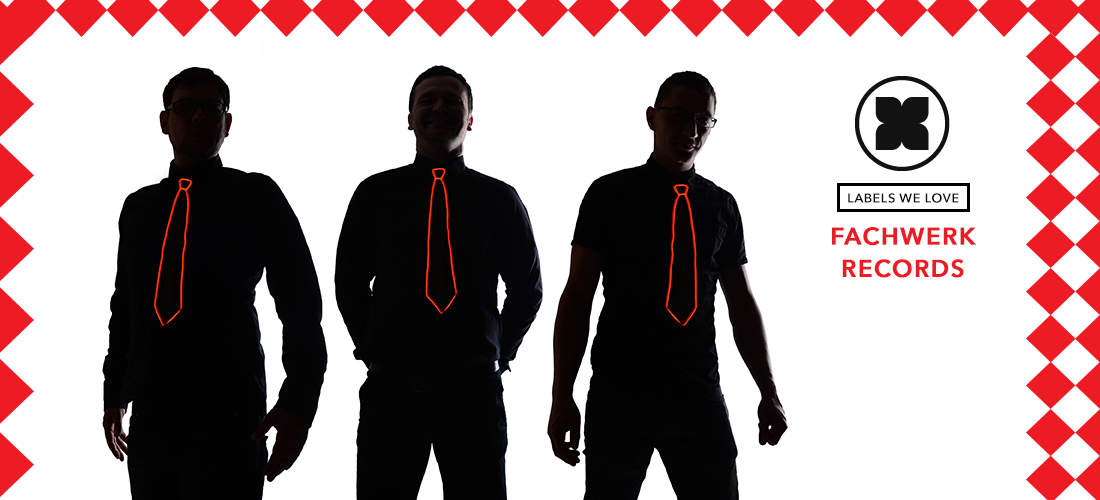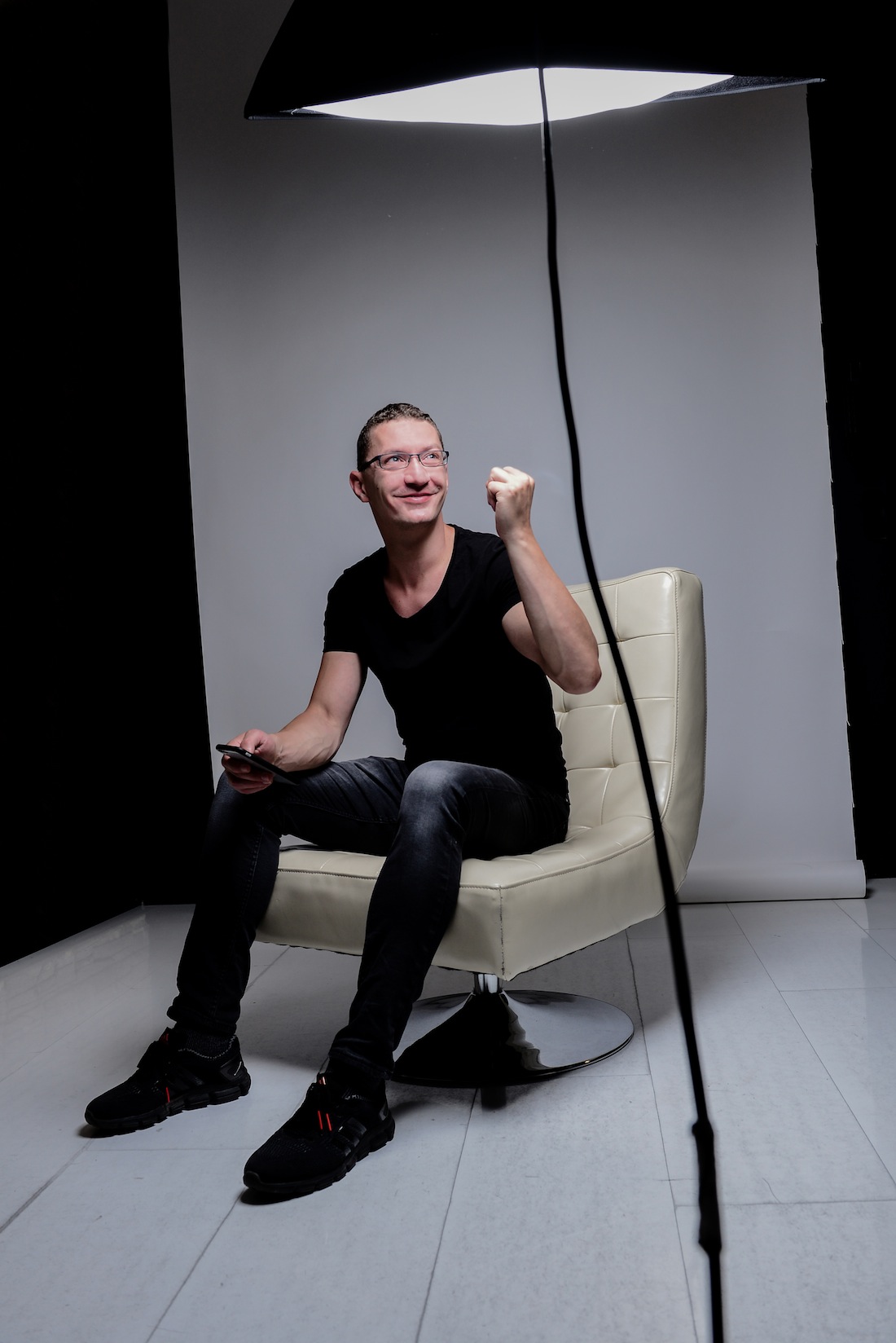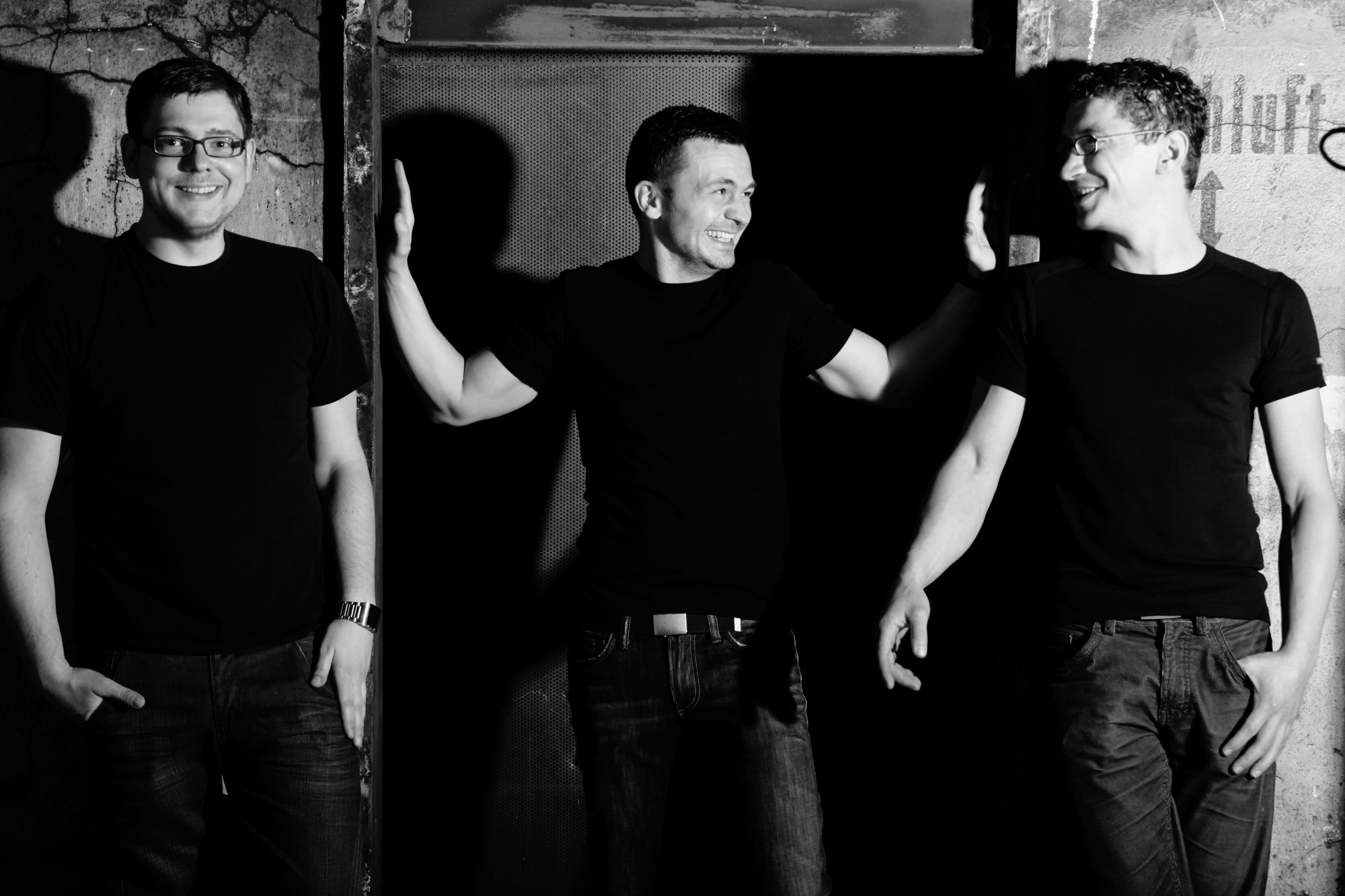Labels We Love: Fachwerk Records
As the label celebrates its eighth anniversary, founder Mike Dehnert reflects on its impromptu success.

Labels We Love: Fachwerk Records
As the label celebrates its eighth anniversary, founder Mike Dehnert reflects on its impromptu success.

Almost eight years have passed since Mike Dehnert founded Fachwerk Records from the comfort of his own home. Driven forward by Dehnert’s desire to focus on little more than the music, and supported by in-house artists Sascha Rydell and Roman Lindau, the Berlin-based imprint has grown into one of the world’s leading techno labels, extolled for the relentless quality of its output. To mark the occasion, the label has announced plans to release 8 Years Fachwerk, an 15-track compilation that captures the label’s evolution with members of the trio each contributing their unique perspective to the anniversary piece.

In advance of the compilation’s September 4 release, XLR8R visited Dehnert to learn more about the running of the DJ, producer and live performer’s flourishing imprint, reflect on its unplanned ascendancy, and discuss his calculated methods of protecting the signature Fachwerk sound.
Fachwerk has been a great success since its inception in 2007. Did you ever envision this?
No. Fachwerk’s success was certainly not planned. As a label head, I do what I like and it’s just grown from there. It makes me laugh because when I started the label, everyone told me that techno labels just do not work, and that I must focus on a more minimal output. I told them “No”—and just went off to do the techno stuff that I wanted. So sitting here now, is still amazes me that we’re celebrating the label’s eighth anniversary.
What was the reason for starting the label?
I just wanted a challenge. I had this vision to start a techno label, and that is just what I did. I was so fed up of people telling me that I couldn’t start a techno label, and I wanted to prove to people that you can start a label that doesn’t focus on a minimal music. It felt like I was fighting everybody all the time, but it’s actually been a lot easier than I first anticipated. I started off by putting the records in the record stores, like Hard Wax, and then suddenly it worked.
Is running a label something you had been thinking about for a long time?
Yes. I have wanted my own imprint ever since I was 17, but I had absolutely no idea how it worked. I released my first record when I was 17 years old—and my parents had to sign the contract! I studied economics, and after that I liked the idea of being in business, but it somehow had to be related to music. That’s when I knew I wanted to start a label.
Is it fair to say you also wanted a label to put out your own productions, too?
That’s true. I wanted a label through which I could put out my own productions without compromise. I wanted to produce what I wanted to produce, and release what I wanted to release.
Where does the name Fachwerk come from?
It’s to do with architecture. It’s linked to the English word framework or timber framing. There is no big idea or amazing story behind it—but I think that in between techno and house there is a space, and that is where I wanted the sound of the label to be. It made sense and sounded right.
“The label has become known for nothing else besides the music, and I am very proud of this.”
When you started the label in 2007, where was the label headquartered?
In my head—and that is still where it is today. I now have a small office in my flat and also a studio, but I pretty much run the label from my head. For me, my head is the office. It took eight years for me to get the hang of it, but it is mostly just delegating and making decisions now. I don’t really need an actual office.
You work closely with producers Roman Lindau and Sascha Rydell, but do you actually run the label by yourself?
It is just me. Roman and Sascha are producer friends of mine who regularly release on the label. We discuss Fachwerk a lot, but it is only me who makes the final decisions, does the artwork and runs the finances. I do everything. It is a full-time job, especially with my production work and DJing, and sometimes I am very busy. It sounds like a lot but I have always been very good at making decisions and this saves me a lot of time. I have also become very fast at producing so it has certainly become easier.

How clear was your vision of the label before you started it? Did you have a very clear image of the sound you wanted the label to release?
The vision was the music, and the people gave us the image. There was no business model or plan of where we wanted to go—I had only an idea of the music that I wanted to release through the label. It’s funny because we have never really promoted the label, yet the Fachwerk output is still played all over the world. The label has become known for nothing else besides the music, and I am very proud of this.
The growth of electronic music has resulted in thousands upon thousands of music labels, many of which don’t succeed. Why do you think Fachwerk has been different?
I think a lot of labels concentrate too much on the business side of things—like the image and promotion. In many ways, the music then becomes secondary to everything else. It becomes more like a company than a music label, and so they don’t have any identity. On the other hand, there are certainly labels that focus too much on the music and then they sometimes don’t last more than a year. I don’t know how Fachwerk has lasted eight years. I guess we have found the balance, but I’ve just done what has felt right and that just seems to have worked.
“I don’t want to tell people that I am cool, or that they have to listen to it because this DJ played it during this set. I want people to discover it on their own.”
Has this desire to focus more on the music affected how you promote the label?
Yes. When I started the label there was a MySpace account, but there was no Facebook. The only promotion was the music. I don’t want to tell people that I am cool, or that they have to listen to it because this DJ played it during this set. I want people to discover it on their own. The same is still true now—but the label must have Facebook to connect with the fans.
So you’d say that the musical output of Fachwerk has been the key factor in the label’s success?
Certainly. For me, it is very important that each EP we release is interesting. It makes me laugh, because I always have people coming to me telling that that there is a “Fachwerk sound” or something like that—and this sonic identity is important. It’s like how you can identify a Levon Vincent track straight away.
If you give me a computer, I can make a standard techno EP in 10 minutes. That’s no problem. The challenge is making a nice contrast on the release, because this takes a lot of time—but this is so important for me. It’s easy to release 20 EPs a year with no character, but then that is more like a business than a label. Fachwerk has always been different, because it focuses on very few releases—but each one must have this artistic contrast. I’m very careful with this.
In order to protect the Fachwerk signature sound, do you have to be careful about which of your own productions you put out through other labels?
This is very important. I have artists and labels writing to me to invite me to release on their labels, but the danger is that if I put a Fachwerk-sounding track out on another label it will damage Fachwerk. Looking back, I have been very careful, and I think you can see the difference between the productions that I put out on Fachwerk and those on other labels. I actually recently had a big offer from a company that wanted to make a Fachwerk sample pack. It was tempting…but I knew that if I had accepted it, then everybody would then sound like Fachwerk and the label would be damaged.
“I can recognize a Fachwerk artist within five seconds of listening to a demo.
How do you balance the protection of this sound with offering artists creative control?
It’s important to give artists complete creative control. In this case I am the label head but they are the artists and I hate it when artists ask me for my opinions on what to do with a track. If the artists cannot fix their own tracks, then it is not really artwork. Creative control is the priority.
So do you keep the number of artists intentionally small to ensure quality of output?
Not intentionally, no. The problem is that I can’t find the artists who have a sound that fits with the label. I can recognize a Fachwerk artist within five seconds of listening to a demo. I don’t know why—but I can. I can’t tell you what this sound is but I can recognize it. It’s an instinct.
Do you listen to all the promos that you receive?
I receive a lot of promos, but there are not many of them that I actually like. I think a lot of artists send out their tracks like spam, because they copy lots of labels into the same e-mail. I think it has to be slightly more personal. But at the same time there are lot of artists who try to copy-paste the Fachwerk sound—and that doesn’t work, either.
A lot of the promos that I receive will come with 12 tracks and a note telling me that they want to release an EP on the label. I am a label head, and not a producer in this case—so I cannot make the decision as to which of those tracks go on the EP. That is not my decision to make because I am not the artist. If you want to release an EP, send the completed EP. If you want to release an album send the complete album. I can then take it or leave it, depending on whether I like it and whether it would fit in with the label.
Do you ever proactively search for artists to release on the label?
The release schedule is already full for the next five years—and I have enough material for the next decade. I could release digitally every week, but I limit the number of releases to only about four each year. However, if I discover something really great then I will make arrangements for a special release—like I did with Limo.
“I think this has probably influenced the sound of the label and the artists that work with the label because the tracks are not very fast and they are not packed with orgasm breaks every twenty seconds.”
The artists that you work with on Fachwerk are mostly Berlin-based producers. Is this a conscious decision, or is just linked to the sound you’re trying to put out?
It’s not a conscious decision, but my history of playing in Berlin has probably influenced the output of the label. In my experiences with the Berlin clubs, the warm-up is about five or six hours, and then there is the prime time. But that is it—there is no after-hour. I think this has probably influenced the sound of the label and the artists that work with the label, because the tracks are not very fast and they are not packed with orgasm breaks every twenty seconds. I think that has probably also made the records sound more relaxed in their arrangements.
What are your thoughts on formats?
It’s always been very important that Fachwerk releases are available on vinyl. A number of big companies told me for many years that it makes sense only to release digitally, but I think this is the downfall for a lot of labels. I can see that the young generation are crazy for vinyl, and I think this has been important to our success.
And how do you balance the output of full-length albums and EPs?
I really like the album format because it is like a story. You have more time and space to express yourself artistically. But a good album is a very difficult thing to write, so I try to be careful as to which artists release albums on Fachwerk. An album is a story from the artist—it is not easy to do.
Do you have any particular artists that you would like to release on the label?
Not really. I actually have some artists who have written to me, asking to release on Fachwerk—but the problem is that I don’t have the money available to pay for the advances. I think also that sometimes their sound doesn’t fit in with what I am looking to achieve with the label. If I was thinking from only business a business perspective, then I would release these tracks because it would grow the label very quickly—but it wouldn’t fit in with the label’s culture.
Looking back over the eight years of Fachwerk, are there any releases that stand out in particular?
It’s very difficult. It doesn’t feel like there were too many peaks, rather it is just a process of steady growth. For me, every release is really good, and that’s why we’ve created a Fachwerk sound. However, I would say that the fifth release, the MDRL EP, was really cool because it has “Umlaut 2”—which is the most licensed track of the catalog. Also the start of the label nights at Berghain in 2009 definitely helped to establish the label internationally. The next one is on September 5—which will be another long night.

